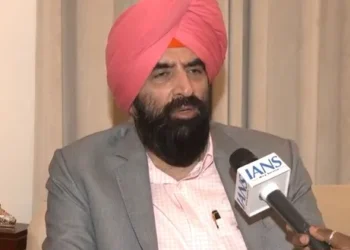A low-carb, anti-inflammatory diet may spur hope for people suffering from long Covid, suggests an Indian-origin researcher.
Long Covid is an often debilitating illness that occurs in at least 10 per cent of patients after a Covid-19 infection and includes fatigue, brain fog, headaches, chest pain, and heart palpitations.
To date, there is no proven treatment for the syndrome, even the underlying mechanisms that cause it are not fully understood.
A team of researchers from the University of Southern California’s Keck School of Medicine have, in a new clinical trial, proposed to investigate if a diet designed to lower inflammation may play a role in easing this often debilitating condition.
The premise of the trial revolves around recent research indicating that long Covid may be caused by a hyper-inflammatory response that becomes activated during Covid-19 as the body fights off the virus but, in some people, does not recede even after the infection has passed.
High inflammation levels in the body can lead to organ damage and other health problems.
“We are examining if food choice can quiet the body’s inflammatory response and in doing so, effectively minimise or curtail long Covid symptoms,” said Adupa Rao, an investigator of the clinical trial and medical director of the Keck Medicine Covid Recovery Clinic.
The study will examine the anti-inflammatory effect of a low-carbohydrate diet to lower blood glucose (sugar) levels in combination with a medical food that raises blood ketone levels.
Ketones, including beta-hydroxybutyrate, the active ketone in this food, are chemicals the body produces to provide energy when the body is low on carbohydrates and sugars. A low-carb diet and ketones have both been associated with reduced inflammation in the body.
Researchers plan to enrol 50 long Covid patients, of which half will receive a 30-day dietary intervention and half will not. At the end of the month, researchers will determine how patients tolerated the regimen as well as compare inflammatory markers and long Covid symptoms between the two groups of patients.
If the nutritional intervention is tolerated well by patients and improves their health issues, researchers plan to expand the clinical trial to a larger population.
“Research like ours is vital to expand our understanding of long Covid and ultimately help identify effective treatments to improve patients’ quality of life,” said principal investigator of the clinical trial, Nuria Pastor-Soler, an associate professor of medicine at the Keck School.
“The results of this trial will hopefully move us closer to potential solutions.”























